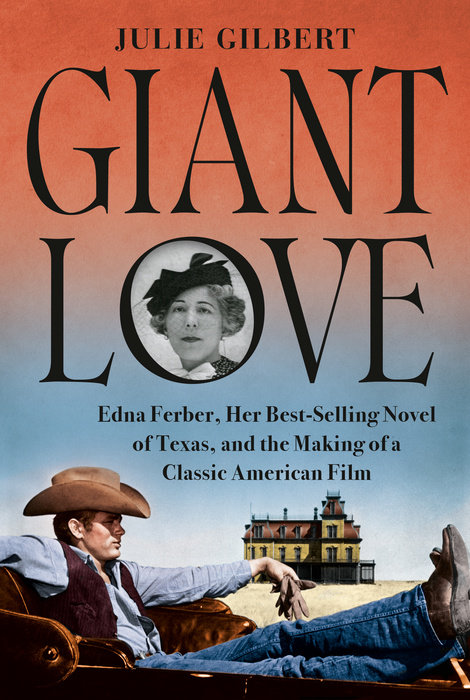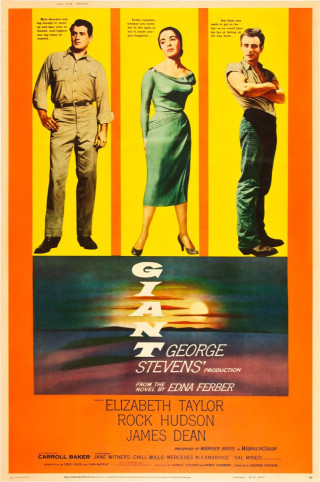When Edna Ferber’s Giant was published in 1952, Texans were not pleased. Ferber’s sweeping novel about cattle, oil, and the winds of change brought a reform-minded Virginia woman, Leslie Benedict, to a Texas ranch, where she has the temerity to suggest that the denizens might treat their nonwhite, non-male neighbors a little better. Show some kindness to the Mexican immigrants—or “wetbacks,” as they’re routinely called in Giant—living in poverty down the road. Acknowledge that women might be capable of and interested in thinking about politics.
Ferber, a waggish, literary New Yorker born and raised in the Midwest, known for novels including Show Boat and So Big, had done the unpardonable—she had messed with Texas—and Texas let her know how it felt. Julie Gilbert recalls some of the vitriol in her new book. Giant Love: Edna Ferber, Her Best-Selling Novel of Texas, and the Making of a Classic American Film. “Carl Victor Little in his Houston Press review suggested that she be lynched,” Gilbert writes. Little dismissed Ferber’s “‘brand of fiction’ as steeped in backstairs gossip and what girl-novelists call local color.” Later, a man in Beaumont, after hearing that Ferber’s novel would be made into a movie directed by George Stevens, made his feelings known to a Hollywood columnist: “If you make and show that damn picture, we’ll shoot the screen full of holes.”
Ferber was attacked not only for being a carpetbagger, but also for having a progressive agenda. Through her heroine, who comes to the Reata ranch when she marries the longtime cattleman Jordan “Bick” Benedict, the author imagined a transformation that Texans of a certain stripe dream of to this day, and she knew that it would be an uphill battle. Though the state has changed in many ways over the past 70 years—it is more diverse, more urban, and more ideologically varied—political realignment seems just as elusive today. Ask Beto O’Rourke, who generated a sea of lawn signs in 2018 … and then lost his Senate race to incumbent Ted Cruz and the deeply entrenched state Republican machine. Or Colin Allred, who went up against the same candidate in November, with an even worse result. A Democrat hasn’t won a statewide race in Texas since 1994, when Bob Bullock was reelected lieutenant governor.
The state’s current Republican power players, led by Governor Greg Abbott and Attorney General Ken Paxton, have Texas politics in a headlock. The state’s abortion restrictions are among the stiffest in the country; the Texas state school board recently approved Bible-based lessons for public elementary schools. The Texas General Land Office recently offered President-Elect Donald Trump a 1,400-acre ranch to build “deportation facilities.”


